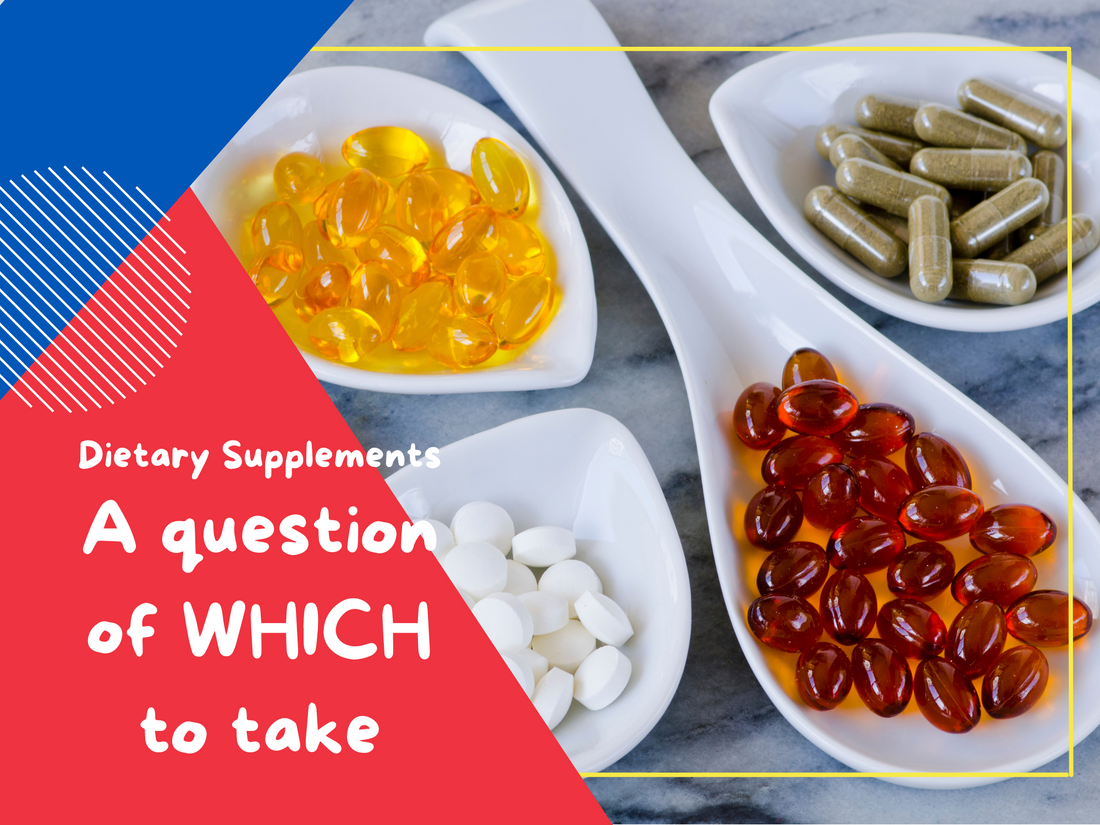Dietary Supplements: Are They Worth Taking?
Teaching energizes, invigorates, and satisfies. But admit it, being a teacher can also take everything out of you, especially if you are not taking care of your health.
With papers to grade piling up and people clamoring for your time and energy, it becomes too easy to put off exercise, proper sleep, and nutrition. Weeks of procrastination build up and result in health issues.
Are you wondering if taking dietary supplements can help revive your health? There is no substitute for good nutrition, exercise, and sleep for long-term health and well-being. However, for the general population, there are a few supplements worth the money.
(Supplements are powerful additions to the body’s chemical makeup. Some supplements react with prescription medications. Before taking any supplement, obtain appropriate medical advice to determine the right supplements and dosages for you.)
What vitamins are worth taking?
Taking a good multi-vitamin makes sense to fill nutrition gaps if you have an overwhelmingly busy schedule or follow an alternative diet like keto or vegan. If you find you often grab whatever to eat because you are in a hurry, seriously consider adding a complete multi-vitamin/mineral supplement to your routine.

For the general population, nutritionist Dawn Lerman (MA, CHHC, LCAT) suggests Calcium, B Vitamins, Vitamin D, Magnesium, and Zinc are supplements worth your money.
The National Institute of Health: Office of Dietary Supplements provides a daily recommended intake guide for vitamins and minerals. The recommendation amounts are the combined total amount from consumed foods, beverages, and supplements for a given nutrient.
-
Calcium
The skeleton is made of calcium. Long-term lack of sufficient calcium results in weak bones or osteoporosis. This especially affects the elderly.
Calcium is also one of the electrolytes with a role in hydration.
Daily Recommended Intake: For adults - 1,000 mg for adults; For women over 51 or men over 71 - 1,200 mg.
Calcium Food Sources: dairy, fortified foods, kale, and broccoli.
-
B Vitamins (Folic Acid & B12)
Many of the B Vitamins (B2, B3, B5, B6) are involved in converting food into energy to power the body. Folic acid (B9) and B12 play additional roles.
The Center for Disease Control (CDC) urges women in their reproductive years to supplement a healthy diet with 400 mcg of folate acid (B9). Sufficient levels of folate acid before pregnancy prevents neural tube birth defects.
Daily Recommended Intake for Folic Acid: For adults- 400 mcg; For pregnant women – 600 mcg.
Folate Food Sources: dark green leafy vegetables, melons, citrus fruits, bananas, strawberries, nuts, beans, and peas.
Vitamin B12 manufactures DNA (genetic coding) and keeps nerve and blood cells healthy. Most Vitamin B12 food sources are animal-based. Vegetarians and vegans should take a daily B12 supplement. Low blood levels of Vitamin B12 may cause feelings of tiredness or weakness.
Daily Recommended Intake for Vitamin B12: For adults – 2.4 mcg, For pregnant women – 2.6 mcg.
Vitamin B12 Food Sources: meat, fish, eggs, dairy, and fortified foods.
-
Vitamin D
The sun produces Vitamin D by synthesizing cholesterol in the layers of our skin. Obtaining Vitamin D from the sun works well with proper sun exposure, including living south of 34-degree latitude. For the elderly, overweight, heavy sunscreen users, and those living north of 34-degree latitude (most of the US), a vitamin D supplement is essential for good health.
Vitamin D is required for calcium absorption. It also is involved in supporting energy levels and the immune system.
Daily Recommended Intake: For adults – 15 mcg; For adults over age 71 – 20 mcg.
Vitamin D Food Sources: Fatty fish (salmon, sardines, anchovies) and fortified foods. Beef liver, cheese, egg yolk, and mushrooms contain small doses of Vitamin D.
-
Magnesium
Magnesium is another electrolyte involved in hydration, and it regulates nerve and muscle functioning, blood sugar levels, and blood pressure. Magnesium also is involved in making protein, bone, and DNA. Magnesium has been shown to help reduce stress and promote better sleep.

Daily Recommended Intake: For adult males – 400 mg; For adult females – 310 mg; For pregnant women – 350 mg.
Magnesium Food Sources: Green leafy vegetables, artichoke, winter squash, nuts, seeds, and soybeans.
Zinc supports the immune system to fight infections. It is also essential in wound healing as it helps form proteins and DNA. Stressed individuals and the elderly are often zinc deficient.
Daily Recommended Intake: For adult males and pregnant women – 11 mg; For adult females – 8 mg.
Zinc Food Sources: Shelled seafood (shrimp, lobster, oysters, crabs, etc.).
Other Supplements Worth Your Money
Two other supplements may be worth the cost, depending on your diet and needs.
-
Fish Oil
The American Heart Association recommends eating fatty fish twice a week. The omega-3 fatty acids in salmon, sardines, lake trout, mackerel, herring, and albacore tuna are associated with a reduced risk of stroke or heart disease.

Omega 3 Fatty acids may also help improve mood and reduce joint inflammation. If you do not eat fish, a fish oil supplement loaded with omega-3s offers a healthy boost. (Taking a fish oil supplement before meals reduces the fishy after taste and burps.)
Daily Recommended Intake: For adult males – 1.6 g; For adult females – 1.1 g; For pregnant women – 1.4 g.
-
Probiotics
Twenty years of studies show the connection between the gut microbiome and good health. There is a link between sufficient beneficial bacteria in the intestines and depression, obesity, inflammatory bowel disease (IBS), and immune functioning.
Probiotics feed desirable gut bacteria. People suffering from a frequent upset stomach (bloating, gas, constipation, or diarrhea), IBS, food intolerances, an autoimmune disease, or consuming high-sugar diets may benefit from probiotic supplementation.
Kathleen Tabb, a registered dietitian, suggests using a probiotic supplement when taking an antibiotic for a bacterial infection. (Antibiotics kill off beneficial gut bacteria along with harmful bacteria.)
Daily Recommended Intake: No set dosage. Seek the advice of a medical professional to determine what is right for you.
Probiotic Food Sources: Fermented foods, including yogurt (Greek), sauerkraut, Keifer, kombucha, and probiotic fortified foods.
Supplement Quality
Like every product for sale, a supplement’s quality varies by brand.
Supplements are not required to obtain the Food and Drug Administration's (FDA) approval before marketing. How can you know if a supplement brand is of high quality and worth purchasing?
The FDA heavily regulates supplement labeling. Check the label for quality certifications. Certified organic, halal, or kosher means stringent documentation, testing, and processing are in place. Third-party certification adds an additional level of assurance with in-house audits and outside laboratory purity and identity testing.
Supplements are not intended to cure diseases. Be wary of purchasing supplements claiming to prevent, treat, or cure diseases. The FDA requires dietary supplements with structure or function claims to state the product has not been evaluated by the FDA.
Teacher Power Energy Drinks
Life happens, and every now and then, we all need a little energy boost. Teacher Power has you covered with healthy sugar-free energy drinks. With our powdered mix, you are in control.
A full scoop contains a full array of B Vitamins and 100 mg of caffeine at just $0.40 per serving. A half scoop cuts the B Vitamins and caffeine in half.

Our immunity-boost energy drinks contain the same amount of energizing B Vitamins and caffeine but add Vitamin D, zinc, elderberry, echinacea, curcumin, and ginger to put your immune system in fighting order.
You got this with Teacher Power in your mug!
The content of Teacher Power’s website is for information only, not advice or guarantee of outcome. Information is gathered and shared from reputable sources; however, Teacher Power is not responsible for errors or omissions in reporting or explanation. No individuals, including those taking Teacher Power products, should use the information, resources or tools contained within to self-diagnosis or self-treat any health-related condition. Teacher Power gives no assurance or warranty regarding the accuracy, timeliness or applicability of the content.
By: Jae O. Haroldsen
Sources:
“Vitamin D Consumer Fact Sheet.” NIH 2021. https://ods.od.nih.gov/factsheets/VitaminD-Consumer/
“Calcium Consumer Fact Sheet.” NIH. 2021. https://ods.od.nih.gov/factsheets/Calcium-Consumer/
Hewlings, Susan J, and Douglas S Kalman. “Curcumin: A Review of Its Effects on Human Health.” Foods (Basel, Switzerland) vol. 6,10 92. 22 Oct. 2017, doi:10.3390/foods6100092
“What You Need to Know.” NIH. https://ods.od.nih.gov/factsheets/WYNTK-Consumer/
Kassel, Gabrielle. “According to Nutritionist, These are the 7 Ingredients Your Multivitamin Should Have.” Healthline. 2020. https://www.healthline.com/health/food-nutrition/best-vitamins-to-take-daily
“Folic Acid Helps Prevent Serious Birth Defects of the Brain and Spine.” CDC. 2021. https://www.cdc.gov/ncbddd/folicacid/features/folic-acid-helps-prevent-some-birth-defects.html
“Vitamin B12 Fact Sheet for Consumers. NIH. 2021. https://ods.od.nih.gov/pdf/factsheets/VitaminB12-Consumer.pdf
“Magnesium Consumer Fact Sheet.” NIH. 2021. https://ods.od.nih.gov/factsheets/Magnesium-Consumer/
“Zinc Consumer Fact Sheet.” NIH. 2021. https://ods.od.nih.gov/factsheets/Zinc-Consumer/
“Fish and Omega-3 Fatty Acids.” American Heart Association. 2017. https://www.heart.org/en/healthy-living/healthy-eating/eat-smart/fats/fish-and-omega-3-fatty-acids
Savage, Eliza. “The 8 Best Fish Oil Supplements of 2021. According to a Dietitian.” Very Well Fit. 2021. https://www.verywellfit.com/best-fish-oil-supplements-4165827
Tabb, Kathleen. “Should I Take Probiotics? Digestive Dietitian Weighs In.” Rebecca Bitzer and Associates. https://rbitzer.com/should-i-take-probiotics/
Dix, Megan. “What’s an Unhealthy Gut? How Gut Health Affects You.” Healthline. 2020. https://www.healthline.com/health/gut-health
“Questions and Answers on Dietary Supplements.” FDA. 2019. https://www.fda.gov/food/information-consumers-using-dietary-supplements/questions-and-answers-dietary-supplements
Cuciureanu MD, Vink R. Magnesium and stress. In: Vink R, Nechifor M, editors. Magnesium in the Central Nervous System [Internet]. Adelaide (AU): University of Adelaide Press; 2011. Available from: https://www.ncbi.nlm.nih.gov/books/NBK507250/

